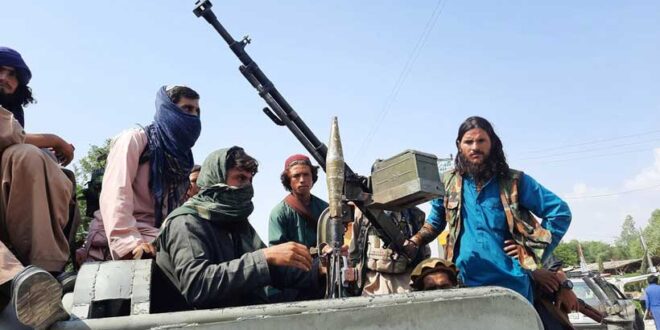Afghanistan, a nation characterized by rugged mountains and a rich tapestry of ethnic diversity, has for decades been at the epicenter of regional and global terrorism. Its geopolitical significance, combined with a history of foreign intervention and internal strife, has fostered an environment conducive to the proliferation of terrorist activities.
To understand Afghanistan’s position as a fountainhead of terrorism, it is essential to trace the historical context that has shaped its current state. Afghanistan’s modern history is marked by a series of conflicts that have significantly influenced its political and social landscape.
The Soviet invasion of Afghanistan in 1979 marked a critical turning point. The decade-long conflict saw the rise of the Mujahideen, a conglomeration of Afghan resistance fighters who, with substantial support from the United States, Pakistan, and Saudi Arabia, fought against Soviet forces. This period laid the groundwork for the emergence of militant Islamist ideologies that would later fuel global terrorism. The withdrawal of Soviet troops in 1989 did not bring peace; instead, it led to a power vacuum and subsequent civil war, further destabilizing the country.
In the mid-1990s, the Taliban emerged as a dominant force, promising to restore order and enforce Sharia law. By 1996, they had captured Kabul and established the Islamic Emirate of Afghanistan. The Taliban’s harsh regime provided a safe haven for various terrorist organizations, most notably al-Qaeda. The relationship between the Taliban and al-Qaeda culminated in the planning and execution of the September 11, 2001, attacks on the United States, which precipitated the U.S.-led invasion of Afghanistan.
The involvement of foreign powers has been a significant factor in the perpetuation of terrorism in Afghanistan. The geopolitical interests of countries like the United States, Pakistan, Iran, and Russia have often converged and conflicted within Afghan borders.
Following the 9/11 attacks, the United States, with NATO allies, launched Operation Enduring Freedom to dismantle al-Qaeda and remove the Taliban from power. While the initial phase of the invasion succeeded in ousting the Taliban, the subsequent two decades of military presence failed to establish lasting stability. The Taliban regrouped, launching an insurgency that persisted until the U.S. withdrawal in August 2021. The chaotic withdrawal and the rapid Taliban takeover have raised concerns about Afghanistan once again becoming a terrorist sanctuary.
Pakistan has played a complex and often contradictory role in Afghanistan. On one hand, it has been a crucial ally to the United States in the War on Terror; on the other, it has been accused of providing support to the Taliban and other militant groups. The Pakistani military and intelligence services have strategic interests in maintaining influence in Afghanistan, viewing it as a counterbalance to Indian influence in the region. This has involved supporting elements of the Taliban, which has contributed to the ongoing instability and the persistence of terrorism.
Iran and Russia have also played significant roles in Afghanistan’s dynamics. Iran, with its significant Shia population, has often found itself at odds with the Sunni Taliban, yet it has provided support to various factions within Afghanistan to counter U.S. influence. Russia, on the other hand, views Afghanistan through the lens of its historical invasion and current strategic interests. Both countries have engaged in a delicate balancing act, supporting different groups to maintain influence and counter perceived threats.
The internal socio-political dynamics of Afghanistan further complicate the fight against terrorism. Afghanistan is a mosaic of ethnic groups, including Pashtuns, Tajiks, Hazaras, and Uzbeks, each with distinct identities and political aspirations. The Taliban, predominantly Pashtun, have often been at odds with other ethnic groups, leading to internal conflicts that terrorist groups exploit.
Afghanistan’s economy has been devastated by decades of war, leaving a significant portion of the population in poverty. The lack of economic opportunities, coupled with widespread corruption, drives many young Afghans towards radicalization. Terrorist groups often provide financial incentives and a sense of purpose, making them attractive to the disillusioned and impoverished populace.
The ideological indoctrination propagated by madrasas (Islamic schools) funded by foreign entities, particularly from the Gulf States, has played a crucial role in the radicalization process. These institutions often promote an extreme interpretation of Islam, creating a steady stream of recruits for terrorist organizations. This process of indoctrination has long-term implications, as it embeds extremist ideologies within the fabric of Afghan society.
Tribal and ethnic tensions have historically plagued Afghanistan, contributing to its instability. The Taliban’s dominance, primarily among the Pashtun tribes, has often marginalized other ethnic groups like the Hazaras, Tajiks, and Uzbeks. These tensions create a fertile ground for terrorist groups to exploit, as they can recruit from marginalized communities by promising empowerment and revenge against rival groups.
Afghanistan’s status as a fountainhead of terrorism is a result of its turbulent history, foreign interventions, and intricate socio-political dynamics. The return of the Taliban to power has revived concerns about the country once again becoming a breeding ground for global terrorism. Addressing this issue requires a multifaceted approach that includes regional cooperation, economic development, and addressing ideological indoctrination. Only through a concerted and sustained effort can the cycle of violence and terrorism in Afghanistan be broken, paving the way for a stable and peaceful future for the region. The international community must remain vigilant and proactive, supporting Afghanistan in its quest for peace and stability, and ensuring that the seeds of terrorism do not find fertile ground to grow.
 Eurasia Press & News
Eurasia Press & News



